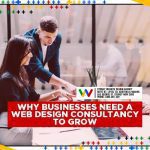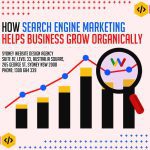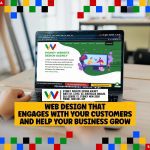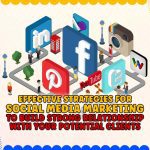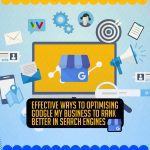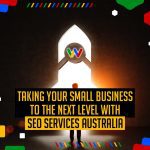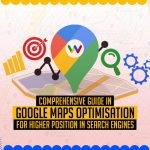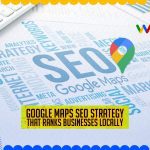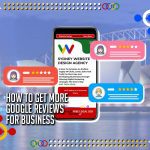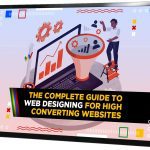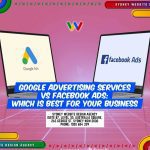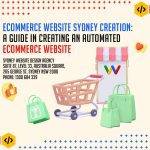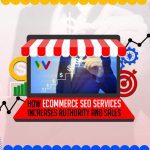A well-designed website or online store can make all the difference in attracting and retaining customers. By not merely relying on premade website templates, you can offer your site visitors with a more immersive and engaging experience with your website. A professional web design or a custom website design tool can do plenty of advantages for your business model.
Little details like design inspiration, built-in features, website builder, user interface, SEO tools integrated, and logo design contributes to the overall site architecture of your eCommerce website. The web development precess is crucial in creating web pages that actually converts and the site content fits the needs of your audiences.
One of the main benefits of having a website that engages with your customers is that it helps to build trust and credibility. A site design that is easy to navigate, visually appealing, and provides valuable information creates a positive impression in the minds of visitors. It demonstrates that you are professional, reliable, and committed to providing a great customer experience.
Engaging web design services can also help to increase conversion rates. When visitors are engaged with your web page, they are more likely to spend more time on it, explore your products or services, and make a purchase. By using intuitive design elements, such as clear calls to action and easy-to-use navigation, you can guide visitors through the buying process and make it as seamless as possible.
Additionally, a well-thought web page design can help to differentiate your business from competitors. By creating a unique and memorable user experience, you can stand out in a crowded marketplace and build a loyal customer base. Your website is an opportunity to showcase your brand personality and communicate what sets you apart from others in your industry.
Finally, an engaging website can provide valuable insights into customer behaviour. By tracking user interactions and gathering data, you can learn more about what your customers are interested in, what they like or dislike about your website, and how you can improve their experience. This information can be used to inform future web design decisions and marketing strategies, helping your business to grow and thrive.
Introduction
Your website is the online face of your business. It’s where customers go to learn about you, find your products and services, and make purchases. So, it’s important that your website look great and functions flawlessly. But creating a powerful web design site isn’t easy as it sounds, it takes time and effort to get it right.
That’s why we created this guide: to help you create a website that will engage your customers and help your business grow. We’ll start by discussing the basics of web design, then move on to more advanced features and topics like using colour effectively, adding multimedia, and creating an effective navigation system. We also have plenty of helpful tips for designing a mobile-friendly site.
By the end of this guide, you’ll have access to all the knowledge you need to help your website look wonderful and works perfectly.
Table of Contents
Why Website Engagement Matters

Website engagement is a crucial factor that businesses should prioritise. A website is a company’s digital storefront, and it’s often the first point of contact for potential customers. With so many businesses competing for customers’ attention online, it’s important to make a positive impression and keep visitors engaged.
One of the most significant benefits of website engagement is that it can lead to increased conversion rates. When visitors spend more time on a website, they are more likely to become customers. Engaged website visitors also are more likely to explore your products or services and make a purchase. Additionally, if visitors have a positive experience on your website, they are more likely to return and even recommend your site to others.
Engagement is also a critical factor for search engine optimisation (SEO). Search engines like Google prioritise websites that have high engagement rates. If visitors spend more time on a website and interact with it in various ways, it signals to search engines that the website is providing valuable information and a positive user experience. As a result, the website is more likely to rank higher in search results, which can lead to increased traffic and revenue.
Another reason why website engagement matters is that it can help businesses gather valuable data and insights about their customers. By tracking user behaviour, businesses can gain a deeper understanding of what their visitors are interested in, what they like or dislike about the website, and what their pain points are. This information can be used to improve the website’s design and content, as well as inform marketing strategies and product development.
Website engagement is essential for businesses that want to succeed in the digital age. It can lead to increased conversion rates, better SEO rankings, and valuable insights about customers. By focusing on engagement and providing a positive user experience, businesses can set themselves apart from the competition and build long-lasting relationships with their customers.
What Makes Your Audiences Love Your Website

A lovable website is also visually appealing and reflects the brand’s personality. The design should be consistent with the brand’s overall image, and the website should be visually engaging with eye-catching images and graphics. The website’s colour palette, font selection, fonts and imagery should all work together to create a cohesive and attractive design. Additionally, these website features make it even more engaging for your target visitors.
Navigation and User Experience
- Clear and concise navigation that guides visitors to the content they’re looking for.
- Organised and easy-to-read content that is presented in a logical and intuitive way.
- Intuitive design elements such as buttons, forms, and other interactive features that make it easy for users to engage with the website.
- A consistent design that is easy on the eyes and reinforces the brand’s image and personality.
Visual Appeal
- A visually engaging design that captures the user’s attention and keeps them engaged.
- Attractive images and graphics that add visual interest and communicate key information.
- A cohesive colour palette, font selection, and imagery that all work together to create an appealing design.
High-Quality Content
- Informative and engaging content that adds value to the user’s experience.
- Well-written and easy to read content that is free from spelling and grammatical errors.
- Regular updates to content to keep the website fresh and relevant.
Personalisation
- Tailored content and recommendations based on the user’s preferences.
- Personalised product suggestions, content, and recommendations that are relevant to the user’s interests.
- Personalised marketing messages that resonate with the user and make them feel understood.
Performance Optimisation
- A fast-loading website that doesn’t keep users waiting.
- A responsive design that works well on desktop and mobile devices.
- No broken links or errors that could frustrate users and drive them away.
Creating a lovable and engaging website requires a focus on navigation and user experience, visual appeal, high-quality content, personalisation, and performance optimisation. By paying attention to these key factors and working with a web design expert, businesses can create a website that delights and engages their audiences, fostering greater brand loyalty and driving business growth.
The Role of Web Design Experts in Increasing Web Traffic

Web design plays a crucial role in increasing web traffic. Here are several ways web design experts can help businesses increase web traffic:
Creating an Attractive and User-Friendly Website Design
An attractive and user-friendly website design is the foundation of a successful website. A web design expert can create a professional website designer that is visually appealing, easy to navigate, and provides a great user experience. When visitors have a positive experience on a website, they are more likely to stay on the website longer and engage with the content, which can increase the website’s overall traffic.
Optimising Website for Search Engines
Search engine optimisation (SEO) is critical for increasing web traffic. A web design expert can optimise a website’s design and content to improve its search engine ranking. By using relevant keywords, meta descriptions, and alt tags, the website can rank higher in search engine results pages, leading to increased traffic from organic search.
Creating High-Quality Content
Web design experts can work with content creators to create high-quality content that is informative, engaging, and relevant to the target audience. By creating content that resonates with the target audience, a website can increase its traffic as users share the content on social media, link to it from their own websites, and return to the site for more.
Designing with Mobile Devices in Mind
More and more people are using their mobile devices to browse the internet, which means that a website must be designed with mobile devices in mind. A web design expert can create a mobile-responsive design that adapts to the size and orientation of the screen, providing a seamless user experience across all devices. By designing for mobile devices, a website can attract a larger audience and increase its traffic. Responsive web design is the future of web design.
Implementing Analytics and Tracking
Web design experts and designers can set up analytics and tracking tools to monitor website traffic and identify areas for improvement. This data can be used to make informed decisions about website design, content, and marketing strategies to increase website traffic.
Web design experts play a critical role in increasing web traffic. They can create an attractive and user-friendly website design, optimise the website for search engines, create high-quality content, design with mobile devices in mind, and implement analytics and tracking to monitor website traffic. By working with a web design expert, businesses can increase their web traffic, grow their brand, and achieve their business goals.
Which Web Design Type is Best for Your Business
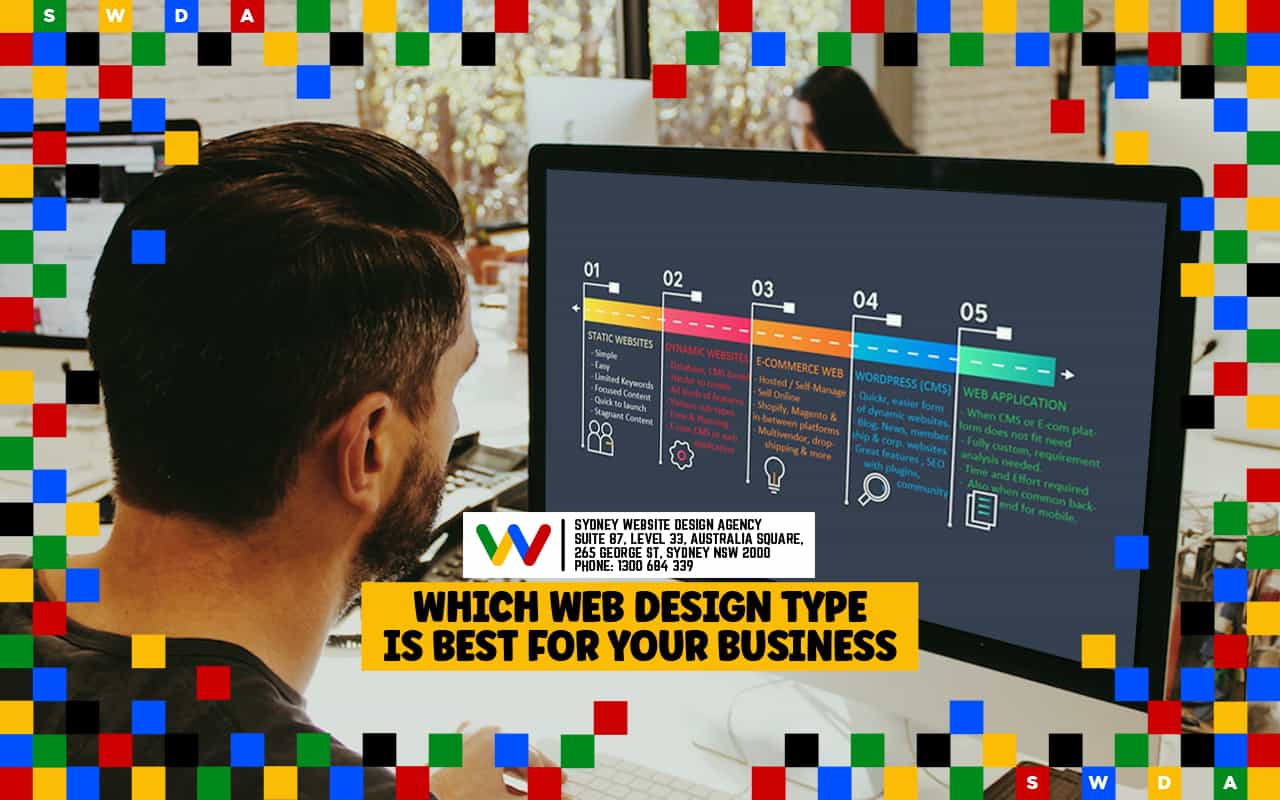
The best type of web design for a business depends on several factors, such as the business goals, target audience, products, or services offered, and branding. However, here are some common types of web design that businesses can consider:
Responsive Design
This design approach focuses on making the website adaptable to different apps, screen sizes and devices, ensuring a smooth and consistent user experience across all devices. It’s crucial for businesses that have a mobile audience.
Minimalist Design
This modern design style features clean and simple layouts, with a focus on white space, typography, and strategic use of colour. Minimalist design can be an excellent choice for businesses that want to emphasise their brand and message.
User-Centered Design
This design approach focuses on the user’s needs and preferences, emphasising usability and accessibility. It can be an ideal platform of choice for businesses that would like to improve the user experience and engagement on their website.
Interactive Design
This design approach aims to engage the users through interactive elements like animations, videos, and gamification. Interactive design can be a suitable choice for businesses that would like to showcase their products or services in a more engaging and interactive way.
E-commerce Design
This design approach focuses on creating an optimised and streamlined online store for businesses that sell products or services online. It typically includes features to sell online, like product catalogue, shopping cart, checkout, and payment integration.
Ultimately, the best web design for a business will depend on its specific needs and goals. It’s essential to work with a professional web designer or agency to create and customize a website that reflects your brand, engages your audience, and achieves your business objectives.
Common Factors That Successful Websites Have

There are several factors that successful websites typically have in common. Here are some of the most important ones:
Clear and compelling value proposition
A successful website typically has a clear and compelling value proposition, which communicates what the website is about, what it offers, and how it is different from its competitors.
User-friendly design and navigation
A successful website is easy to use and navigate, with a clean and organised layout, clear and concise headings and subheadings, and intuitive navigation menus.
Mobile responsiveness
With the increasing number of mobile users, a successful website needs to be mobile-responsive, which means it can adapt to different screen sizes and devices, providing a smooth and consistent user experience across all devices.
High-quality and relevant content
Successful websites offer high-quality, informative, and engaging content that is relevant to the target audience, answering their questions, solving their problems, and fulfilling their needs.
Search engine optimisation (SEO)
A successful website is optimised for search engines, using relevant keywords, meta descriptions, relevant images alt tags, and other SEO techniques to improve its visibility and ranking in search engine results pages.
Fast loading speed
Successful websites load quickly, ensuring a seamless and uninterrupted user experience. Websites with slow loading speeds can lead to user frustration and abandonment.
Strong social media presence
Successful websites have a strong social media presence, which can help drive traffic to the website’s purpose, increase engagement, and build brand awareness and loyalty.
Clear calls to action (CTAs)
Successful websites have clear and prominent calls to action (CTAs) that encourage users to take the desired action, such as signing up, subscribing, or making a purchase.
Overall, successful websites are user-focused, engaging, informative, and optimised for both users and search engines. They provide a seamless and enjoyable user experience, fulfil users’ needs and expectations, and achieve their business objectives.
Web Design Site Frequently Asked Questions
What types of web design services do you offer
How long does it take to develop a website?
Do you offer any other digital services besides web design?
Do you provide hosting for websites?
Do you provide any guarantees?
How do I get started with web design services?
What if I need help managing or updating my website?
Are your services secure?
Do you provide training on how to use my website?
Finding a Web Design Partner for Your Business

In conclusion, web design that engages with your customers is critical to the success of your business. By creating a positive user experience, increasing conversion rates, differentiating your business, and gathering valuable insights, you can drive growth and achieve your goals.







